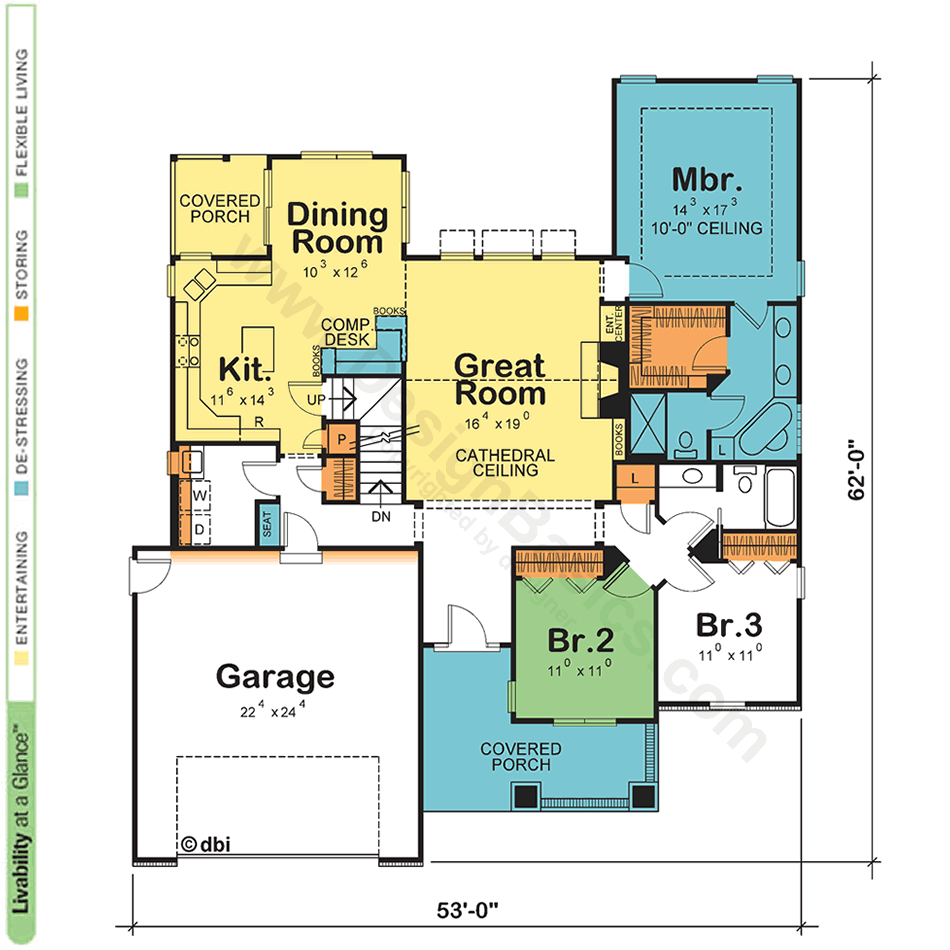

The mapping process from genome to phenotype is done in four parts. This allows floor plans to differ in the number of rooms they have. This applies historical markers to allow crossover of graphs with varying topology. The genetic encoding is a generalization of NeuroEvolution of Augmenting Topologies (NEAT) that allows the artificial evolution of neural networks to graphs. For example, the cafeteria must be adjacent to the kitchen. Adjacency requirements create a subgraph with maximum edge weight. Connection genes specify two node genes to span as well as a randomly initialized weight they are added in a random manner until the graph is connected. Every desired room is represented with a node gene that contains information such as the room's size. The floor plan genome is a weighted, connected and undirected graph. Instead of encoding every path of all the hallways, a few attribute genes can optimize the entire layout.

This is analogous to developmental genes that establish patterns and guide development. Attribute genes encode meta-parameters that control various aspects of the simulations. Ant-colony algorithms are probabilistic methods for finding optimal paths using a hive of emergent agents. Graph contraction is a family of algorithms that aim to create visually appealing layouts of a graphs. Two simulations, graph-contraction and ant-colony pathing, are used as 'growth processes'. New tools for managing this complexity can empower designers to explore and optimize the increasingly high dimensional fitness spaces. Converging with those abilities are advances in manufacturing, including CNC milling, on-site 3D printing, self-assembling structures and others, which are enabling new and more complex possible forms for which there are no simple means of designing. Recent computational tools that model the simulation of traffic, acoustics and heat conservation, among others, are allowing a more quantitative objective evaluation of forms. Within architectural design, the layout of rooms is an early stage of the design process that is guided by multiple competing objective and subjective measures. BackgroundĪ central challenge of spatial design problems is optimizing the relative positions, shapes and sizes of forms. Classrooms had a higher priority than storage rooms.
SCHOOL BUILDING FLOOR PLAN SOFTWARE WINDOWS
Windows were also experimented with as an additional fitness function. Right: Also optimized for minimizing fire escape paths. Left: Optimized for minimizing traffic flow bewteen classes and material usage. It was a fun learning experience and I plan to re-use methods in other projects. The results were biological in appearance, intriguing in character and wildly irrational in practice. The floorplan is 'grown' from its genetic encoding using indirect methods such as graph contraction and emergent ones such as growing hallways using an ant-colony inspired algorithm. The research goal is to see how a combination of explicit, implicit and emergent methods allow floor plans of high complexity to evolve. The creative goal is to approach floor plan design solely from the perspective of optimization and without regard for convention, constructability, etc. The rooms and expected flow of people are given to a genetic algorithm which attempts to optimize the layout to minimize walking time, the use of hallways, etc.
SCHOOL BUILDING FLOOR PLAN SOFTWARE HOW TO
How to prepare and face emergencies and disasters in schools?Īdministrators, teachers, staff, parents, and students must work together to promote and maintain school-wide safety and minimize the effects of emergencies and other dangerous situations.


 0 kommentar(er)
0 kommentar(er)
